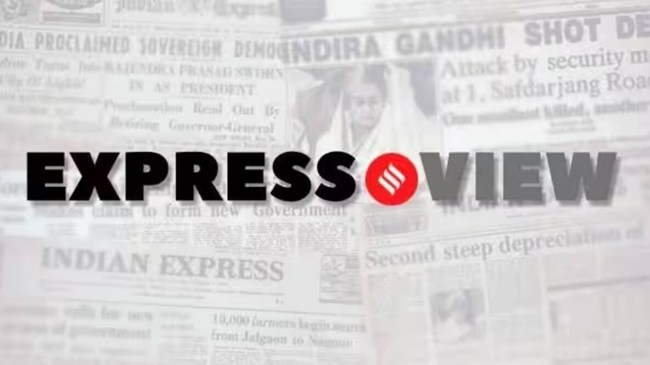Opinion From Sanjay Kumar to Shiv Aroor, political parties need to stop weaponising the law
Be it the targeting of CSDS for an honest mistake or the threat to a TV anchor by an Opposition party, there is a larger, chilling message
 If the ruling establishment errs on the side of suspicion and vengefulness, Congress flatters it by imitation.
If the ruling establishment errs on the side of suspicion and vengefulness, Congress flatters it by imitation. The Supreme Court has done well to stay criminal proceedings against Sanjay Kumar, poll analyst and co-director of Lokniti, a research programme at the capital’s Centre for the Study of Developing Societies. The FIRs against Kumar were outrageous to begin with. Consider the sequence of events: He posted two tweets on August 17 on alleged discrepancies in voters’ lists of specific constituencies in the Maharashtra Lok Sabha and Vidhan Sabha elections, and on finding out that they were erroneous, deleted them two days later, also tendering a public apology. And yet, after this, two FIRs were registered by officials reporting to the Election Commission in Nagpur and Nashik, under sections of the Bharatiya Nyaya Sanhita, alleging criminal intent in misleading voters and citizens. This ease of imputation of criminality, and weaponisation of law to unleash a disproportionate response to an inadvertent error that had been almost instantly acknowledged, is disturbing. Sanjay Kumar and the institution he belongs to are central to, and at the same time, incidental in this still-unfolding sobering story.
The CSDS has done pioneering work in studying India’s politics as it is and in generating alternative imaginations; in drawing linkages between scholarly research and living social movements; in opening up spaces for a multi-disciplinary academic engagement to connect to everyday practices. Founded in 1963 by Rajni Kothari, who gave a seminal grounding framework for understanding Indian politics, the CSDS has been supported by the Indian Council for Social Science Research since 1969. Today, in a climate of heightened political polarisation, where allegations of “vote chori” — based more in speculation than fact — point to a downward spiral into a nihilistic politics, the fact that Kumar’s erroneous post was seized upon by Congress and wielded against the BJP before it was withdrawn, comes in handy, especially to those searching for a pretext to target an autonomous institution and paint spectres of a conspiracy. Incidentally, Kumar has also expressed his scepticism of Congress’s “narrative” of the stolen election, and said that there is no evidence for it.
If the ruling establishment errs on the side of suspicion and vengefulness, Congress flatters it by imitation. The crude threat issued by the party against NDTV anchor Shiv Aroor for his critique of Congress’s campaign — the party spokesperson says that a criminal complaint has been filed for the “malicious attempt to defame” — is a mirror image of the ruling BJP. Be it the targeting of the CSDS for an honest mistake or the threat to a TV anchor by the Opposition party, however, there is a larger, chilling message: When political players draw the lines between “us” and “them” so tightly, free speech and commentary are a casualty — further pushing discourse to either of the margins.






